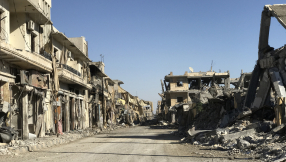WHO warns TB disaster possible without action
"Scenarios of apocalyptic nature are not, let's say, likely, but they might happen. They are not... impossible," said Mario Raviglione, director of the World Health Organisation's Stop TB department.
"Globally speaking about 96 percent of all TB cases are still treatable with the four drugs that we use in the standard regimen, 4 percent are multi-drug resistant ... but the worst case scenario is when this 4 percent becomes 50, 60, 70, 80 percent," he told reporters at a conference in Cape Town.
Raviglione said a worst case scenario would see multi- and extensively drug resistant TB overtake cases of ordinary TB, which can still be cured with older but effective drugs.
Multi- and extensively drug-resistant TB (MDR-TB and XDR-TB) are mutations of common TB virtually immune to all treatments. Raviglione said some countries in the former Soviet Union were showing an MDR-TB incidence of up to 20 percent, while some European states showed resistance to all second-line TB drugs -- the most powerful in an increasingly ineffective drug arsenal.
Outlining the seriousness of the emerging drug resistance, Raviglione said the situation in some European countries reminded health officials of the "pre-antibiotic era" of 1943.
He said Russia, China, India and South Africa were the four countries worst-hit with MDR-TB and XDR-TB, accounting for up to 60 percent of the world's cases.
The emergence of drug-resistant TB strains, coupled with a deadly co-infection of TB and HIV, has alarmed health authorities who are uniting to head off a global TB crisis.
On Thursday, hundreds of activists and TB experts attending the 38th Union World Conference on Lung Health marched through Cape Town's city centre to draw attention to the disease, easily spread during close personal contact.
Experts agree that underfunding, outdated drugs, a lack of new vaccines and poor diagnostics for TB are hampering treatment, leading to higher and faster mortality rates, especially among those infected with both TB and HIV.
"The XDR epidemic has simply exposed the limitations of the current tools used to control TB ... New diagnostics and hopefully a new vaccine are fundamental items that we have to push through as a global community," Raviglione said.













